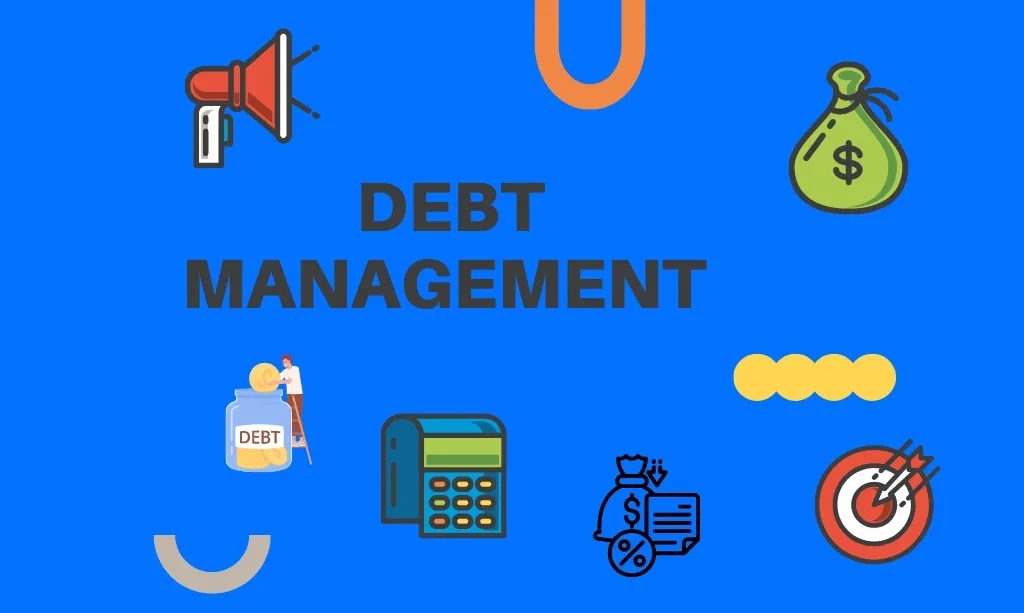In the modern world, effective money management is essential for achieving financial stability and growth. With an abundance of resources available, it is crucial to understand the most effective strategies and tools to manage finances. This comprehensive guide will provide you with the necessary knowledge to make informed financial decisions, optimize your savings, and invest wisely.
Understanding The Basics of Money Management
Money management encompasses various activities including budgeting, saving, investing, and planning for future expenses. The primary objective is to ensure that your income is utilized efficiently to meet your financial goals.
The Importance of Budgeting
Budgeting is the cornerstone of money management. A well-structured budget helps you track your income and expenses, ensuring that you live within your means and save for future needs.
- Creating a Budget Plan :Begin by listing all sources of income and categorizing your expenses into essential and non-essential items. Essential expenses include housing, utilities, groceries, and transportation, while non-essential expenses cover entertainment, dining out, and luxury items.
- Tracking Your Expenses :Use budgeting tools and apps to monitor your spending. Regularly reviewing your expenses helps identify areas where you can cut costs and allocate more funds towards savings and investments.
- Adjusting Your Budget :Periodically review and adjust your budget to reflect changes in income, expenses, and financial goals. This flexibility ensures that your budget remains relevant and effective.
Building an Emergency Fund
An emergency fund is a financial safety net that covers unexpected expenses such as medical emergencies, car repairs, or job loss. Aim to save three to six months’ worth of living expenses in an easily accessible account.
Maximizing Savings
Effective saving strategies can significantly enhance your financial stability. Here are some key tips to maximize your savings:
Read More: Wellhealthorganic Vitamin B12 // Unveiling Worldwide Science Stories
Automating Your Savings
Set up automatic transfers from your checking account to your savings account. This ensures that a portion of your income is consistently saved without the temptation to spend it.
Utilizing High-Interest Savings Accounts
Opt for high-interest savings accounts to grow your money faster. These accounts offer higher interest rates compared to regular savings accounts, providing better returns on your savings.
Cutting Unnecessary Expenses
Regularly review your expenses and eliminate unnecessary spending. This could include canceling unused subscriptions, dining out less frequently, and choosing more affordable alternatives for everyday items.
Smart Investing
Investing is a powerful tool for building wealth over time. Here are some strategies to help you invest wisely:
Diversifying Your Investments
Diversification involves spreading your investments across various asset classes such as stocks, bonds, real estate, and mutual funds. This reduces risk by ensuring that a decline in one asset class does not significantly impact your overall portfolio. Incorporating tools like a Real Estate Property Management CRM can further streamline the management of your real estate investments, enhancing your portfolio’s efficiency and performance.
Understanding Risk Tolerance
Assess your risk tolerance before making investment decisions. Younger investors may have a higher risk tolerance and can afford to invest in more volatile assets, while older investors may prefer more stable and low-risk investments.
Long-Term Investment Strategies
Focus on long-term investment strategies such as retirement accounts (e.g., 401(k) and IRA) and index funds. These investments typically offer steady growth over time and are less affected by short-term market fluctuations.
Seeking Professional Advice
Consider consulting a financial advisor to develop a personalized investment strategy. A professional can provide insights and recommendations based on your financial goals, risk tolerance, and market conditions.
Debt Management

Effectively managing debt is crucial for financial health. Here are some tips to manage and reduce debt:
Understanding Different Types of Debt
Distinguish between good debt (e.g., mortgage, student loans) and bad debt (e.g., credit card debt, payday loans). Good debt typically has lower interest rates and can contribute to long-term financial growth, while bad debt often has higher interest rates and can hinder financial progress.
Creating a Debt Repayment Plan
List all your debts and prioritize them based on interest rates and balances. Focus on paying off high-interest debt first while making minimum payments on other debts. This approach, known as the avalanche method, minimizes interest payments over time.
Consolidating Debt
Debt consolidation involves combining multiple debts into a single loan with a lower interest rate. This simplifies repayment and can reduce the total interest paid. However, it’s essential to ensure that the consolidation loan terms are favorable.
Avoiding New Debt
Limit the use of credit cards and avoid taking on new debt unless absolutely necessary. Adopt a cash-based spending approach to prevent accumulating additional debt.
Planning for the Future
Long-term financial planning is essential for achieving your financial goals and ensuring a comfortable retirement.
Setting Financial Goals
Define your short-term and long-term financial goals. Short-term goals may include saving for a vacation or buying a car, while long-term goals could involve purchasing a home or retirement planning.
Retirement Planning
Start planning for retirement as early as possible. Contribute to retirement accounts such as 401(k) and IRAs, and take advantage of employer matching contributions. Regularly review and adjust your retirement plan to ensure it aligns with your goals and financial situation.
Estate Planning
Estate planning involves preparing for the management and distribution of your assets after your death. This includes creating a will, setting up trusts, and designating beneficiaries for your accounts. Consult with an estate planning attorney to ensure your wishes are accurately documented and legally binding.
Leveraging Technology for Money Management
Technology offers numerous tools and resources to streamline money management. Here are some ways to leverage technology:
Using Budgeting Apps
Budgeting apps like Mint, YNAB (You Need a Budget), and PocketGuard help track your income and expenses, set financial goals, and monitor your progress.
Investing Platforms
Online investing platforms such as Robinhood, E*TRADE, and Vanguard make it easy to invest in stocks, bonds, and other assets. These platforms often provide educational resources and tools to help you make informed investment decisions.
Automated Financial Advisors
Automated financial advisors, or robo-advisors, use algorithms to create and manage investment portfolios based on your risk tolerance and financial goals. Examples include Betterment and Wealthfront, which offer low-cost, automated investment management services.
Conclusion
Effective money management is a continuous process that involves budgeting, saving, investing, and planning for the future. By implementing the strategies outlined in this guide, you can achieve financial stability, grow your wealth, and secure a comfortable future. Remember to regularly review and adjust your financial plans to adapt to changes in your life and financial circumstances.




